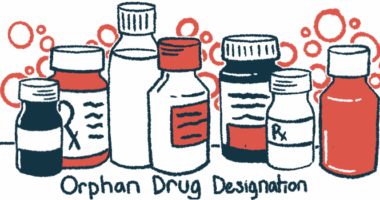Phase 1 trial of STX-0712 for rare leukemia CMML doses first patient
First-in-human study testing therapy's safety, efficacy for blood cancers

The first patient has been dosed in a Phase 1 clinical trial evaluating the safety and early efficacy of STX-0712 in people with resistant or refractory, meaning hard-to-treat, chronic myelomonocytic leukemia (CMML) and other types of blood cancer.
The launch of this first clinical trial was announced by Solu Therapeutics, which is advancing the clinical development of its STX-0712 treatment candidate with $41 million in Series A financing. The company successfully completed early-stage financing to support the therapy’s transition from preclinical to clinical research. Solu also plans to use the funding to expand its drug development pipeline, according to a company press release.
“Our team is thrilled to initiate this first-in-human clinical trial of STX-0712, marking a significant step forward in our mission to develop innovative therapies for patients with high unmet medical needs,” said Sergio Santillana MD, chief medical officer at Solu. “This trial represents an important milestone for Solu Therapeutics as we work to bring novel and potentially more effective targeted therapies to patients with CMML and other hematologic [blood-related] malignancies.”
CMML, a rare form of blood cancer, arises when a specific type of white blood cells, called monocytes, grows out of control. These abnormal monocytes crowd out healthy blood cells, leading to complications like anemia, frequent infections, and easy bleeding or bruising. Approximately 20% of CMML cases progress to a more aggressive form of blood cancer called acute myeloid leukemia, or AML.
STX-0712 is an experimental therapy developed using Solu’s Cytotoxicity Targeting Chimera (CyTAC) platform, which combines small molecules with monoclonal antibodies to selectively target and eliminate cancerous cells.
Phase 1 trial involves patients with hard-to-treat blood cancers
The experimental therapy is designed to target a cell surface protein called CCR2, a G-protein coupled receptor that’s found at high levels on malignant monocytes involved in CMML and other advanced blood cancers.
“By directly depleting the CCR2-positive malignant monocytes driving CMML, STX-0712 has the potential to offer a highly specific and targeted therapy for patients who currently have limited treatment options available,” Santillana said.
Preclinical data, presented at the American Society of Hematology annual meeting last year, showed robust activity with STX-0712 in depleting CCR2-positive monocytes in CMML and AML patient samples.
By directly depleting the CCR2-positive malignant monocytes driving CMML, STX-0712 has the potential to offer a highly specific and targeted therapy for patients who currently have limited treatment options available.
Per the data, STX-0712 achieved up to 91% cancer cell elimination in CMML patient samples and up to 74% in AML samples with minimal off-target effects on healthy lymphocytes or CCR2-negative cells.
In nonhuman primates, the therapy depleted 95% of CCR2-positive monocytes in the blood, with dose-dependent activity. Additionally, animal models confirmed a strong safety profile with no adverse effects.
The open-label, multicenter Phase 1 trial has enrolled patients with resistant or refractory CMML and other blood cancers. In Part A, researchers aim to determine the highest dose of STX-0712 that can be safely tolerated, as well as the lowest dose that still shows signs of effectiveness, per the release. Part B will then assess how well patients tolerate the optimal dose and whether it shows early signs of antitumor activity. An open-label study means both participants and researchers know the medication being given.







